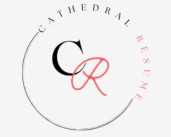
Identify Your Transferable Skills
The concept of transferable skills is pivotal for anyone contemplating a career change. Transferable skills are versatile abilities that can be applied across various job roles and industries. These skills, often honed through diverse experiences, play a crucial role in showcasing your adaptability and potential to prospective employers. Understanding and effectively communicating your transferable skills can significantly enhance your resume, making it compelling even if you are transitioning into a completely new field.
For instance, financial management is a core skill in an accounting career. However, this expertise is not confined to accounting alone; it can be extremely valuable in fields like data analysis. The ability to manage budgets, forecast financial outcomes, and analyze financial data provides a strong foundation for roles that require analytical thinking and data-driven decision-making.
Common transferable skills include project management, analytical thinking, and problem-solving. Project management encompasses planning, executing, and overseeing projects, ensuring they are completed on time and within budget. This skill is indispensable in virtually any industry, as it demonstrates your ability to manage resources, timelines, and team dynamics effectively.
Analytical thinking is another critical transferable skill. It involves evaluating information, identifying patterns, and making informed decisions. Whether you are in finance, marketing, or engineering, the ability to think analytically allows you to interpret data, identify trends, and develop strategic solutions to complex problems.
Problem-solving skills reflect your capability to tackle challenges and find effective solutions. This skill is highly sought after in any professional setting, as it indicates your resilience and creativity in overcoming obstacles.
To identify your transferable skills, start by reviewing your previous job descriptions and responsibilities. Reflect on the tasks you performed and the skills you utilized to accomplish them. Consider feedback from supervisors and colleagues to gain insights into your strengths. Additionally, think about any projects or initiatives you led and the skills required to drive them to success. By thoroughly analyzing your experiences, you can pinpoint the transferable skills that will resonate with potential employers and bolster your resume.
Craft a Powerful Summary Statement
When transitioning careers, a powerful summary statement on your resume can serve as a critical first impression. Unlike traditional resumes that focus heavily on past job titles, career changers must emphasize transferable skills, demonstrate a passion for the new field, and articulate clear career goals. The goal is to present a narrative that ties your previous experience to your desired role.
Begin with a strong opening that highlights your key transferable skills. For instance, if you’ve honed analytical and problem-solving skills as an accountant and are transitioning to a role in data analysis, make these skills the focal point of your summary. Additionally, articulate your enthusiasm for the new field. This not only shows that you are committed but also that you have taken steps to understand and prepare for your new career path.
Here’s a template for crafting an effective summary statement:
“Dynamic and results-driven professional with over [X] years of experience in [Previous Field]. Adept at [Transferable Skill 1], [Transferable Skill 2], and [Transferable Skill 3], with a proven ability to [Quantifiable Achievement]. Passionate about leveraging my expertise in [New Field] to contribute to [Specific Career Goal].”
For example, a career changer moving from accounting to data analysis might craft their summary as follows:
“Dynamic and results-driven professional with over 7 years of experience in accounting. Adept at financial analysis, data interpretation, and problem-solving, with a proven ability to streamline financial processes resulting in a 15% reduction in costs. Passionate about leveraging my expertise in data analysis to contribute to data-driven decision-making and strategic planning.”
Customizing your summary statement for different job applications is crucial. Tailor the transferable skills and career goals to align with the specific requirements of each position. Research the company and the role to understand which of your skills and experiences are most relevant. This approach not only showcases your adaptability but also demonstrates your genuine interest and readiness for the new career path.
Transitioning from one career to another can be a daunting task, especially when it comes to revamping your resume’s work experience section. To make your previous roles relevant to your new career path, it is crucial to emphasize your accomplishments and quantifiable results, highlighting transferable skills that are valued in your desired job. By rephrasing your job duties using strong action verbs, you can present your past experience in a way that aligns with the new role you are targeting.
Focusing on Accomplishments and Quantifiable Results
Instead of merely listing job duties, spotlight your achievements and quantify your results wherever possible. For instance, rather than stating “Managed a team,” a more impactful revision would be “Led a team of 10 to achieve a 20% increase in productivity over six months.” This approach not only demonstrates your leadership skills but also provides a measurable outcome that can be easily understood.
Highlighting Transferable Skills
When rewriting your work experience, focus on transferable skills that are applicable to your new career. If you are moving from accounting to a more analytical role in a different industry, you might highlight your expertise in data analysis and problem-solving. For example, reframe “Conducted monthly financial reports” to “Analyzed financial data to identify trends and recommend cost-saving measures, resulting in a 15% reduction in expenses.”
Using Strong Action Verbs
Action verbs can significantly enhance the impact of your resume. Instead of using passive or vague language, opt for strong action verbs that convey your capabilities. Words like “spearheaded,” “orchestrated,” and “engineered” can replace more mundane terms such as “handled” or “worked on.” For example, “Developed and implemented a new inventory system” can be transformed into “Engineered and spearheaded the implementation of an innovative inventory management system, which reduced stock discrepancies by 30%.”
By revamping your work experience section to highlight accomplishments, incorporate quantifiable results, and use strong action verbs, you can effectively position yourself as a strong candidate for your new career path. Emphasizing your transferable skills will ensure that potential employers recognize the value you bring to their organization, paving the way for a successful career transition.
Keywords are Key
In today’s competitive job market, mastering the art of keyword usage on your resume is crucial, especially for career changers. Applicant Tracking Systems (ATS) are sophisticated software tools that employers use to filter out unqualified candidates by scanning resumes for specific keywords. Consequently, understanding and incorporating these keywords can significantly enhance your chances of advancing through the initial screening process.
To begin, research is imperative. Start by examining job descriptions in your target field meticulously. Identify the key skills, qualifications, and experiences that are repeatedly highlighted across various postings. These recurring terms are your targeted keywords. For instance, if transitioning from accounting to a role in aerospace engineering, you might notice frequent mentions of “project management,” “data analysis,” and “quality assurance.”
Once you have identified these important keywords, the next step is to integrate them seamlessly into your resume. The summary statement at the top of your resume is a prime location to include these terms. This section should succinctly convey your transferable skills and career objectives while naturally incorporating the selected keywords. For example, a compelling summary might read: “Detail-oriented professional with extensive experience in project management and data analysis, seeking to leverage analytical skills in a quality assurance role within the aerospace industry.”
Additionally, the work experience section is another critical area to embed these keywords. Highlight your past achievements and responsibilities in a way that reflects the demands of your desired position. Use quantifiable achievements to demonstrate your proficiency and relevance. For instance, rather than stating, “Managed a team,” you could specify, “Led a team of 10 accountants in a project that reduced reporting errors by 20%.” This not only showcases your leadership abilities but also aligns with keywords pertinent to your new career path.
By strategically integrating relevant keywords throughout your resume, you enhance its visibility to ATS, thereby increasing your likelihood of catching the eye of hiring managers. Remember, the goal is to present your skills and experiences in a way that speaks directly to the requirements of your target job, paving the way for a successful career change.
Consider a Skills-Based Format
For individuals making a significant career shift, such as transitioning from an accountant to an astronaut, a skills-based resume format can be highly beneficial. This format differs from the traditional chronological resume by prioritizing relevant skills over a detailed work history. This approach allows career changers to highlight transferable skills that are pertinent to the new role, showcasing their adaptability and capability to excel in a different field.
A skills-based resume typically begins with a summary that briefly outlines the candidate’s background and career objectives. Following the summary, the resume is divided into sections that focus on key skills and competencies. Each skill is supported by specific examples demonstrating the candidate’s proficiency and achievements in that area. This method allows recruiters to quickly identify how the candidate’s abilities align with the requirements of the new role.
When structuring a skills-based resume, start with a strong headline or career summary. Then, create distinct sections for each core skill. Use bullet points to list quantifiable achievements and experiences that validate your expertise in these areas. For example, an accountant transitioning to an astronaut might have a section titled “Analytical Skills,” with bullet points like:
- Developed complex financial models to predict market trends, demonstrating advanced analytical capabilities.
- Utilized data analysis tools to optimize budget allocations, resulting in a 15% increase in efficiency.
Another section could be “Technical Proficiency,” with bullet points such as:
- Mastered simulation software to analyze financial risks, showcasing the ability to learn and apply new technologies.
- Conducted comprehensive audits using specialized accounting software, ensuring compliance with regulatory standards.
By centering your resume around your skills and providing concrete examples of your achievements, you can effectively communicate your readiness for a new career path. This format not only highlights your relevant abilities but also demonstrates your potential to succeed in a radically different profession.
In the realm of career transitions, the mantra “Tailor, Tailor, Tailor!” cannot be overstressed. Crafting a resume that speaks directly to a specific job posting is paramount. Each job application should be viewed as a unique opportunity to showcase your most relevant skills and experiences, tailored to meet the distinct needs of the prospective employer. The goal is not merely to list your previous roles but to strategically highlight the transferable skills and quantifiable achievements that align with the job you are targeting.
Highlighting Relevant Skills and Experiences
A skills-based format is particularly effective for career changers. This approach foregrounds your core competencies, allowing you to illustrate how your past experiences can be advantageous in a new role. For example, if you’re transitioning from accounting to aerospace engineering, emphasize analytical skills, attention to detail, and project management experience. Use precise language and ATS keywords that are relevant to the job description to ensure your resume passes through applicant tracking systems.
Efficiently Tailoring Your Resume
Customizing your resume for each application does not mean starting from scratch every time. Begin with a strong master resume that encompasses all your skills, experiences, and accomplishments. From this comprehensive document, selectively extract and emphasize the elements that are most pertinent to the job at hand. Adjust your professional summary, re-order bullet points under each job title, and tweak the language to mirror the job posting. This method not only streamlines the tailoring process but also ensures that your resume remains focused and relevant.
Remember, the ultimate aim is to make it abundantly clear that your unique background and skill set are precisely what the employer needs. By tailoring your resume thoughtfully, you demonstrate both your understanding of the role and your proactive approach to aligning your capabilities with the employer’s expectations. This strategic customization can significantly enhance your chances of securing an interview and advancing in your new career trajectory.
Bonus Tip: The Power of a Strong Cover Letter
A well-crafted cover letter can be a game-changer, especially for individuals looking to make a career transition. It provides the perfect opportunity to elaborate on your career shift, articulate your passion for the new field, and highlight your transferable skills. While your resume focuses on your quantifiable achievements and skills-based format, the cover letter is where you narrate your journey and motivations in a personal and compelling manner.
When transitioning from an accountant to an astronaut, for instance, your cover letter should address why you are making this move and how your previous experience is relevant to the new role. This is where you integrate ATS keywords naturally, ensuring your application passes through initial screenings while maintaining a genuine and engaging tone.
Here’s a template to guide you:
Dear [Hiring Manager’s Name],
I am writing to express my enthusiasm for the [Astronaut Position] at [Company/Organization Name]. With a strong background in accounting, I have honed an analytical mindset and meticulous attention to detail, skills that are crucial for success in space missions. My decision to transition into the field of aerospace is driven by a lifelong passion for space exploration and a desire to contribute to groundbreaking missions.
During my tenure as an accountant, I developed exceptional problem-solving abilities and a knack for managing complex data sets, which are directly transferable to the technical and operational aspects of an astronaut’s role. Furthermore, my experience in leading financial projects has equipped me with leadership skills and the ability to thrive in high-pressure environments, both essential traits for space missions.
I am eager to bring my unique blend of skills and experiences to [Company/Organization Name] and contribute to your innovative endeavors. I am confident that my commitment, adaptability, and enthusiasm will make me a valuable asset to your team.
Thank you for considering my application. I look forward to the possibility of discussing how my background, skills, and passion align with the goals of [Company/Organization Name].
Sincerely,
[Your Name]
Crafting a cover letter that effectively communicates your story and motivations can significantly enhance your chances of a successful career change. It bridges the gap between your past experiences and your future aspirations, making a compelling case for why you are the perfect candidate for the new role.
Maintaining an up-to-date resume is crucial for career growth, especially for those contemplating a significant career change. A resume should be seen as a living document that evolves alongside your professional journey. Regular updates ensure that your resume accurately reflects your current skills, experiences, and achievements, making it a powerful tool in the competitive job market.
Regularly Updating Your Resume
To keep your resume fresh, it’s essential to periodically review and revise it. Start by documenting any new skills or certifications acquired since your last update. This could include anything from mastering new software to completing relevant training programs. Incorporating these skills not only showcases your commitment to professional development but also keeps your resume relevant to current industry demands.
Reflecting New Experiences
As you gain new experiences, ensure they are reflected in your resume. Whether it’s a project you led, a team you managed, or a quantifiable achievement like increasing sales by a certain percentage, these additions demonstrate your capability and adaptability. Highlighting such experiences can be particularly beneficial when switching careers, as they provide evidence of transferable skills applicable to your new field.
Aligning with Job Market Trends
Keeping your resume aligned with ongoing job market trends is also vital. Researching the latest skills and qualifications sought by employers in your desired industry can guide your professional development efforts. This might involve learning new technologies or methodologies that are gaining traction in the sector. By tailoring your resume to include these in-demand skills, you enhance your attractiveness to potential employers.
Seeking Feedback
Finally, don’t hesitate to seek feedback on your resume from mentors, colleagues, or professional resume writers. They can provide valuable insights and suggestions on how to improve your resume’s impact. With their input, ensure that your resume remains a robust representation of your career trajectory, one that can effectively support your transition from one profession to another.

